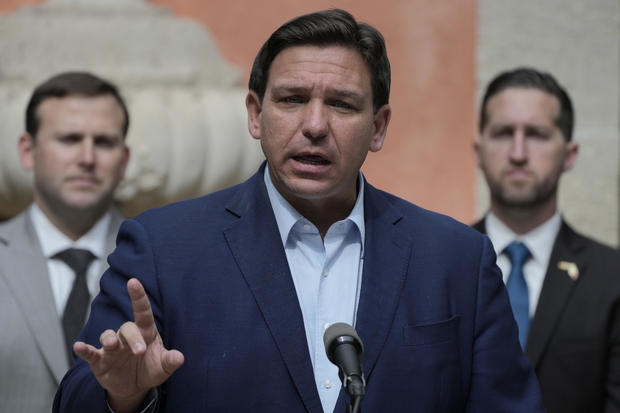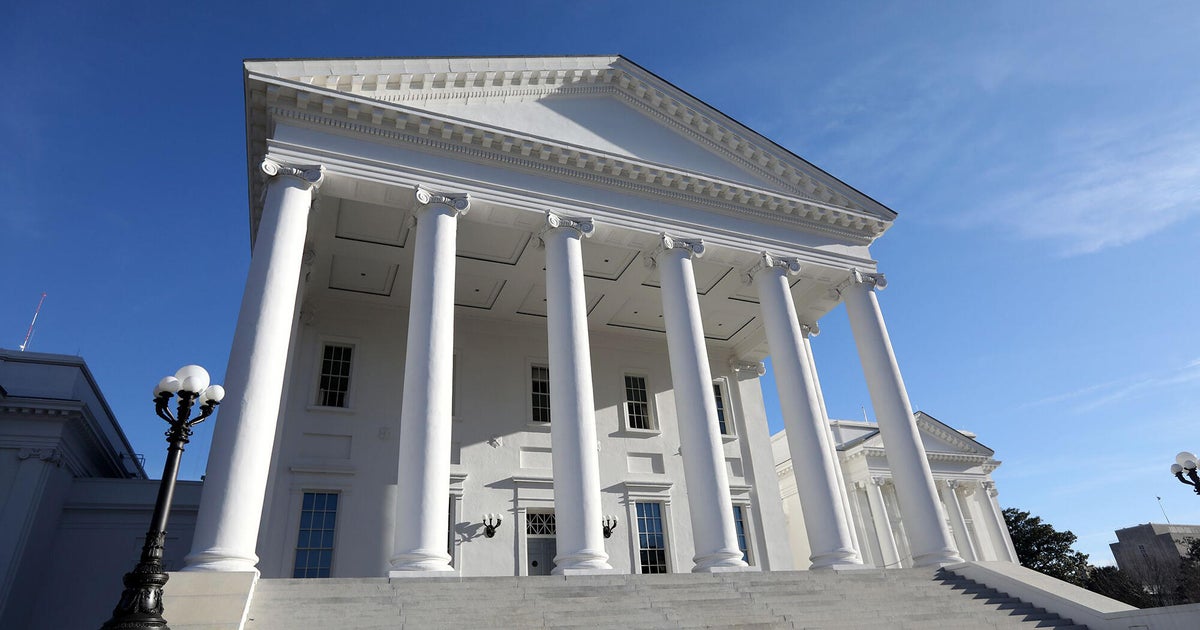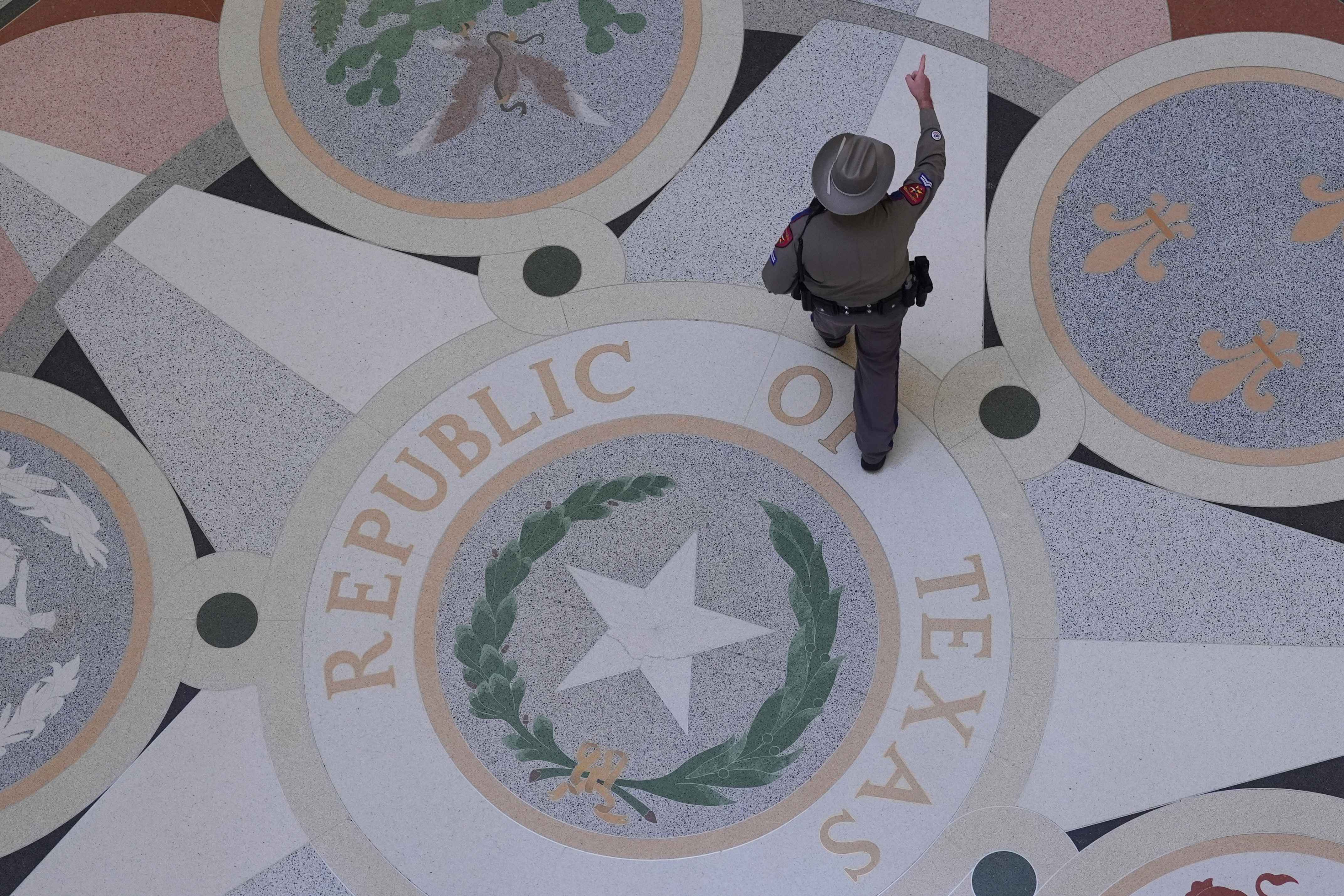Florida Governor Ron DeSantis vetoes Congressional map in push for heavier GOP gerrymander
Florida's Republican Governor Ron DeSantis on Tuesday vetoed the proposed Congressional maps sent by the GOP-led legislature, as part of his push for a more aggressive Republican gerrymander and challenge to a predominantly Black district that covers Jacksonville and Tallahassee, Florida.
Legislators will return to the state capital, Tallahassee, from April 19 to April 22 in a special session to try and pass a map. Florida is gaining one congressional seat due to its population growth shown in the 2020 Census.
DeSantis' push comes as the redistricting cycle has fared better for Democrats than expected. Nationally, Democrats are expecting a net gain of seats so far despite controlling the process in less states than Republicans, though several Republican-led states still have to complete their redistricting process.
DeSantis' proposed map earlier this year would have created a split of 20 Republican-leaning seats and eight Democratic-leaning seats. Their current delegation has 16 Republican members and 11 Democratic members.
The legislature sent two maps to DeSantis. Both add a Republican-leaning seat. The primary map looked to appease DeSantis by making Florida's 5th District, the main target of his ire, more compact around Jacksonville. Their secondary map keeps the district as it currently is, which is a sprawling north Florida district that stretches from Jacksonville, Florida to parts of Tallahassee, Florida.
DeSantis' general counsel Ryan Newman claimed in a memo attached to the governor's veto that the maps violate the U.S. Constitution because it assigns voters "primarily based on race." It says Florida's 5th District is a "racially gerrymandered district" and that it is not "narrowly tailored to achieve a compelling state interest." Newman and DeSantis have also criticized the shape of the district, which covers about 200 miles in north Florida.
In the version of Florida's 5th District used this past decade, the Black population is 47% of the district's population, according to the Census Bureau. Nemwan's memo says the Black voting age population of the district in the proposed primary map is 35.32%, which he suggested would violate the state's constitution anyway.
"There is no good reason to believe that District 5 needed to be drawn as a minority-performing district to comply with Section 2 of the Voting Rights Act, because the relevant minority group is not sufficiently large to constitute a majority in a geographically compact area," Newman wrote.
Florida's constitution requires districts to not be drawn with "the intent or result of denying or abridging the equal opportunity" of minorities to "participate in the political process or diminish their ability to elect representatives of their choice." The state's supreme court ordered Florida's 5th District to be redrawn in 2015, as part of a mid-decade overhaul of their map due to Republican gerrymandering.
In a press conference on Tuesday, DeSantis said legislators had an "understandable zeal" to comply with Florida's constitution, but "forgot to make sure that what they were doing complied with the 14th amendment of the constitution."
Michael McDonald, a political scientist and redistricting expert at the University of Florida, said that this redistricting cycle is a way for DeSantis, a potential 2024 Republican presidential candidate, to look strong to the base.
McDonald added that Florida, which was ordered by the state's Supreme Court to redraw their lines in 2015, "is the best opportunity for Republicans to eek out some advantage— because they can move from a neutral map to a partisan Republican gerrymander."
"DeSantis doesn't want to look like the governor who had a chance to give the Republicans control of the House of Representatives because he didn't stand up and get a good plan out of Florida," he said.
Al Lawson, a Black Democratic member of Congress, has represented Florida's 5th District since 2017. In a statement earlier this month, Lawson said the primary map that centers around Jacksonville "was drawn with the clear intent to create additional seats for one political party at the expense of Black voters."
"This unconstitutional map violates the Voting Rights Act of 1965 and the Fair Districts provision of the Florida Constitution by diluting the voting power of minority communities of interest in North Florida and diminishing the ability of African American voters west of Jacksonville to elect the representative of their choice," he wrote in a statement.
In a statement Tuesday, Florida's Republican leaders in the legislature said "it is incumbent upon us to exhaust every effort in pursuit of a legislative solution."
"We look forward to working with our colleagues and Governor DeSantis during the upcoming special session on a congressional map that will earn the support of the legislature and the governor and fulfill our constitutional obligation for the 2022 redistricting process," wrote Florida Senate President Wilton Simpson and House Speaker Chris Sprowls.
DeSantis signaled he'd rather find a solution with the legislature than leave it up to the state courts to redraw the map.
"We all agree that we have to work through this," DeSantis said Tuesday. "Our goal in this is to have a constitutional map."





